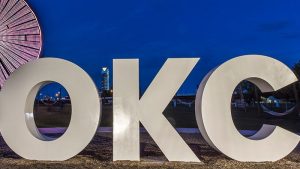Effectively managing the technology needs of more than 5,000 city employees, including employees that utilize technology in the field, requires the right combination of people, processes, and technology.
The cybersecurity threats that have prompted wide-scale action to improve security across the Federal government are posing equal dangers to state and local governments, and officials said at FCW’s CDM Summit virtual event on November 4 that the same solutions being put into place by the Feds also are scalable and adaptable by state and local governments.
The First Responder Network Authority announced that FirstNet has now been adopted by more than 18,500 public safety agencies and organizations nationwide, which accounts for more than 2.8 million connections.
A new study from artificial intelligence (AI) solutions provider Juji found that student engagement is the top challenge in managing online programs.
Maryland’s COVID-19 vaccine call center, created in February of this year, has now helped scheduled more than 460,000 vaccination appointments and made more than 11 million outreach calls to Marylanders.
As part of the Nov. 2, 2021 election, voters in Grand Rapids, Mich., approved an $11.3 million bond for Kelloggsville Public Schools. The bond will be used to build a new Science, Technology, Engineering, and Mathematics (STEM) building for high school students and a new media center for elementary students.
Demand for virtual mental health care among college students is surging, according to new data from telehealth company TimelyMD.
Ohio University was forced to expand its online learning offerings during the COVID-19 pandemic; however, as the university is moving back to more in-person learning it is seeing key opportunities that online learning continues to offer students at Ohio University and elsewhere.
New York City Mayor Bill de Blasio announced that New York City would spend the next three years building publicly-owned broadband infrastructure serving 1.6 million residents while partnering on immediate-term affordable internet connectivity for more than 250,000 residents.
The State of New York released its Excelsior Pass Blueprint, which Governor Kathy Hochul described as “a national framework to aid in the development and implementation of digital health credentials.”













